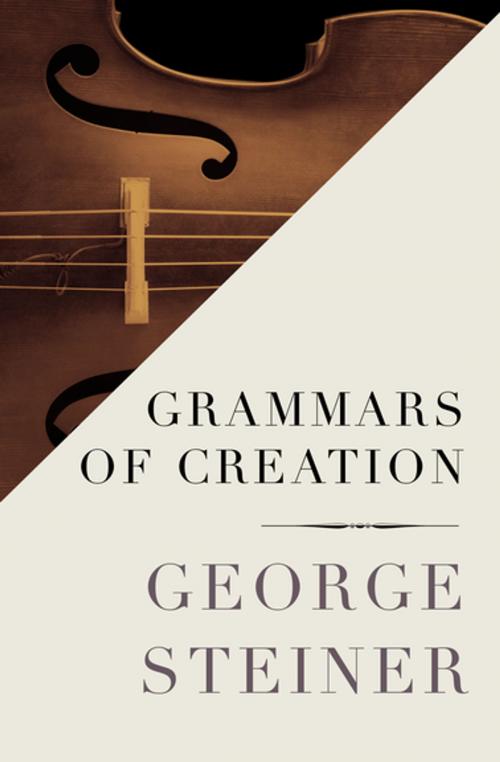Grammars of Creation
Nonfiction, Religion & Spirituality, Philosophy, Aesthetics, Reference & Language, Language Arts, Linguistics| Author: | George Steiner | ISBN: | 9781480411869 |
| Publisher: | Open Road Media | Publication: | April 16, 2013 |
| Imprint: | Open Road Media | Language: | English |
| Author: | George Steiner |
| ISBN: | 9781480411869 |
| Publisher: | Open Road Media |
| Publication: | April 16, 2013 |
| Imprint: | Open Road Media |
| Language: | English |
“A fresh, revelatory, golden eagle’s eye-view of western literature.” —Financial Times
Early in Grammars of Creation, George Steiner references Plato’s maxim that in “all things natural and human, the origin is the most excellent.” Creation, he argues, is linguistically fundamental in theology, philosophy, art, music, literature—central, in fact, to our very humanity. Since the Holocaust, however, art has shown a tendency to linger on endings—on sundown instead of sunrise. Asserting that every use of the future tense of the verb “to be” is a negation of mortality, Steiner draws on everything from world wars and the Nazis to religion and the word of God to demonstrate how our grammar reveals our perceptions, reflections, and experiences. His study shows the twentieth century to be largely a failed one, but also offers a glimpse of hope for Western civilization, a new light peeking just over the horizon.
“A fresh, revelatory, golden eagle’s eye-view of western literature.” —Financial Times
Early in Grammars of Creation, George Steiner references Plato’s maxim that in “all things natural and human, the origin is the most excellent.” Creation, he argues, is linguistically fundamental in theology, philosophy, art, music, literature—central, in fact, to our very humanity. Since the Holocaust, however, art has shown a tendency to linger on endings—on sundown instead of sunrise. Asserting that every use of the future tense of the verb “to be” is a negation of mortality, Steiner draws on everything from world wars and the Nazis to religion and the word of God to demonstrate how our grammar reveals our perceptions, reflections, and experiences. His study shows the twentieth century to be largely a failed one, but also offers a glimpse of hope for Western civilization, a new light peeking just over the horizon.















